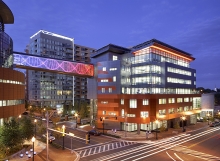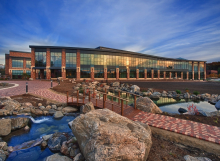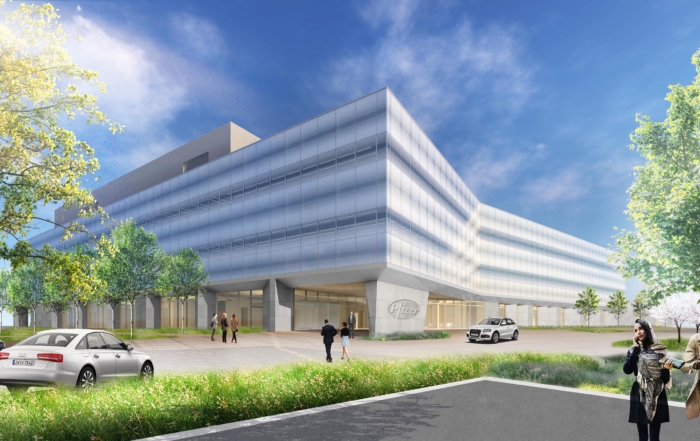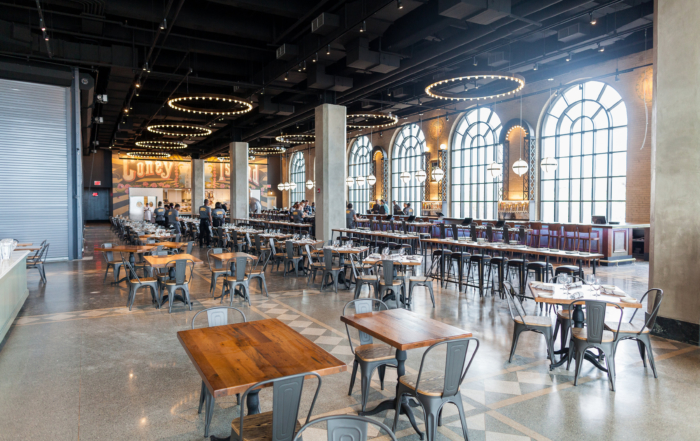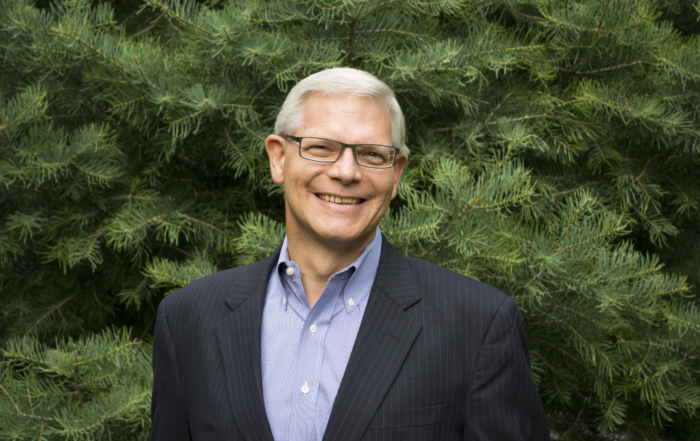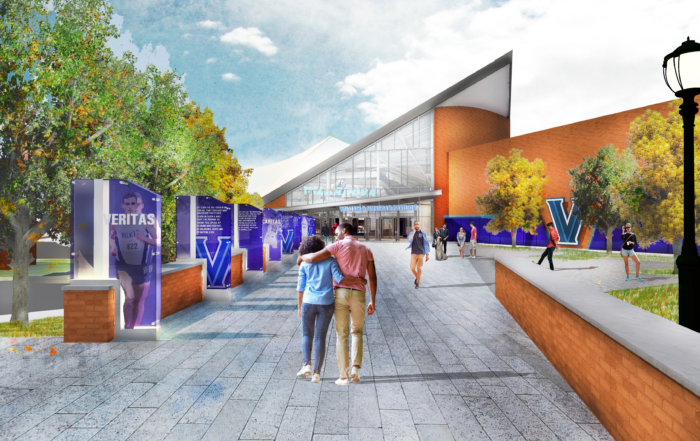About Us
When designing building system solutions, the engineers at EwingCole take pride in providing clients with the best in engineering leadership, problem solving, and cost effective results. EwingCole nurtures a collaborative relationship between architect and engineer so the building systems become an integral part of the building design. We offer our clients truly integrated architectural/engineering design solutions that result in high quality design and optimum building performance.
Our engineering services include all of the disciplines necessary for a well-coordinated and integrated building design; Mechanical/HVAC, Plumbing, Electrical, Structural, Fire Protection, Process, and Instrumentation & Controls.
Mechanical
At EwingCole, we believe that today’s HVAC building system design must take into account the critical need for energy efficiency, reliability, and flexibility while improving indoor air quality and occupant comfort. Our in-house energy modeling capabilities provide us the tools to effectively analyze first costs, as well as operating costs, to allow the owner to make informed decisions that will benefit their facility for the long term.
In addition to our in-depth experience in the design of HVAC systems for a wide variety of new facility types, we also specialize in Central Utility Plant Design, Utility Infrastructure Master Planning, Existing Facility Conditions Assessments, and Sustainable Design.
Plumbing
Plumbing Engineering at EwingCole includes the design of many different systems due to our project diversity. Engineering system design, code and engineering analysis required for these projects included the following:
Drainage systems for sanitary sewerage, special wastes and storm drainage, including neutralizing treatment for special wastes and pretreatment for storm reclamation.
Piping distribution systems for a variety of liquid and gaseous services including water systems for domestic, industrial, purified and animal water systems, medical and laboratory gas systems, fuel gas systems, and cryogenic liquid distribution systems.
LEED design water conservation and water reuse including storm, RO reject and ground water reclamation systems.
The design for all of these systems requires the selection of appropriate piping, pumps and storage tanks to be compatible with the service usage as well as economical, code compliant and energy efficient.
Electrical
Our approach is to utilize our in-house expertise to advocate and design innovative, energy efficient power and lighting systems in collaboration with the design team and client.
We are committed to applying our collective technical knowledge/experience in all aspects of electrical system building design, including medium and low voltage power distribution, emergency power generation and distribution, renewable energy, power quality, energy management and controls, for all facility types and market segments within EwingCole’s portfolio.
Structural
Our structural engineers work closely with our architectural designers to bring structure to their vision. We design building structures to balance competing interests of safety, economy, performance, human comfort, constructability, serviceability and visual elegance. As a result of EwingCole’s diverse portfolio, we have broad experience with various structural systems and their application to new construction and renovation projects.
Fire Protection/Code Consulting
EwingCole maintains a group of licensed Fire Protection Engineers dedicated to engineering life safety systems, offering code consulting services to both in-house designers and our clients, with an eye toward full integration of the built environment. As a national practice with many high-profile projects around the country and in a wide variety of industries, our Fire Protection Engineers have a successful history of negotiating solutions with owners, code officials, insurers and other stakeholders.
Our staff is particularly adept at resolving challenges employing the full breadth of available tools from hand calculations through computational fluid dynamics fire models and 4Dimensional egress models.
Process Engineering
Process Engineering is the heart of design for manufacturing projects. Our Process and Automation Engineers are capable of addressing the broadest range of industrial process, from chemical to pharmaceutical plans. Our SME’s have extensive experience in Biologics, Single-Use, Oral Solid Dosage, Semi-Solids, Aseptic and Medical Devices manufacturing.
We start each project by gaining a thorough understanding of the customer’s needs by developing user requirements upon which to base a sound design, from concept to detailed engineering, to construction administration support and procurement activities.
The design of critical utilities, material handling and related support systems go hand-in-hand with the design of the manufacturing process. Our strengths lay in our integrated AE approach to design, from 3-dimensional piping design to automation and controls. Facility and infrastructure design is developed upon the process design to establish the facility flows, manufacturing areas, warehouse, laboratory and support spaces requirements.
Safety is of paramount concern and built-in to the design of the process and facility as part of our design approach. Our experts have conducted many formal Process Hazards Analyses (PHA), participating both as SME’s and Facilitators. The results and recommendations from these analyses are used to further develop and refine our Internal Quality Protocols.
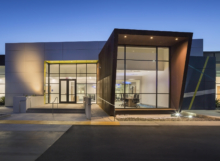
Kite Pharma, Inc.
Corporate, Engineering, Featured Projects, Interior Design, Irvine, Science + Technology
Commercial Manufacturing Facility
El Segundo, CA
The new 45,000 sf state-of-the-art, industrial cGMP manufacturing facility enables the development […]
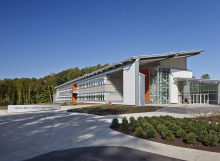
Smithsonian Environmental Research Center
Cultural, Engineering, Government, Science + Technology
Mathias Lab
Edgewater, MD
This $29M project includes a new 94,000 sf laboratory addition to the […]
United Therapeutics
Corporate, Engineering, Interior Design, Science + Technology
Headquarters
Silver Spring, MD
EwingCole provided architecture, engineering and interior design services for United Therapeutics’ new […]
Promega Corporation
Engineering, Science + Technology
IVD GMP Facility
Madison, WI
This project consists of a new 280,000 SF IVD, GMP facility and […]
Our Team

Principal, Director of Engineering
ejoesten@ewingcole.com
Eric brings specialized expertise in the design of mechanical systems for a variety of building types, including pharmaceutical research laboratories, vivaria, cGMP manufacturing facilities, government, and corporate facilities. He is recognized for innovative, cost effective, and efficient solutions to complex and integrated infrastructure systems for pharmaceutical manufacturing facilities. Eric actively participates in the design process, manages all phases of engineering activities, and directs the coordination among all disciplines.

Dave Gordon, PE
Principal, Director of Mechanical Engineering
dgordon@ewingcole.com
David brings specialized experience in the design of HVAC systems for healthcare facilities. His work includes building systems renovation and infrastructure rehabilitation. Clients recognize him for innovative and practical solutions in mechanical systems design, often maintaining an operational advisory relationship with him after project completion.

Bruce Falkenstein, PE
Director of Plumbing Engineering
bfalkenstein@ewingcole.com
Bruce possesses a deep understanding of all plumbing elements including piping, distribution, collection, and consumption. His expertise and responsibilities include engineering design, computer hydraulic modeling and simulation, project coordination, construction administration, and plumbing system evaluation. Other responsibilities include site investigations, design documents and specifications, surveying, technical reports and studies, and code search. Complex building infrastructure upgrades are one of his specialties.

Robert Ghisu, PE
Principal, Director of Electrical Engineering
rghisu@ewingcole.com
Bob brings extensive experience as a lead electrical engineer and manager. His responsibilities include overall electrical engineering and design of power distribution, lighting, and communication systems for a variety of building types. His work includes innovative, cost effective solutions for normal and emergency power distribution systems focused on coordination, management, and power quality. His proprietary power demand bench-marks help him quickly assess the existing power distribution systems and develop demand load analyses for new projects.

Peter Welsh, PE
Principal, Director of Structural Engineering
pwelsh@ewingcole.com
Peter brings more than 20 years of experience in structural engineering and project management. He utilizes his analytical and design skills in developing the structural systems of buildings. He has experience in all types of structural engineering systems and has followed projects from concept through construction administration phases. Peter has worked with new and renovated spaces constructed of many different material for healthcare, federal, and institutional clients.

Roger Rudy, PE
Principal,Director of Fire Protection Engineering
rrudy@ewingcole.com
Roger offers 20 years of experience in fire protection engineering. His deep understanding of life safety building codes and building systems engineering provides teams with the expertise needed for critical building systems. His work includes a wide variety of facility types. Specific tasks include fire suppression/detection systems analysis and design, Fire Safety Evaluation Surveys (FSES), and fire hazard and risk assessments.

Aitor Sanchez-Prado, PE
Principal, Structural Engineer
asanchez@ewingcole.com
Aitor is experienced in the planning, design, and execution of large GMP manufacturing facilities and research laboratory projects including Fast Track and Design-Build delivery methods. As project manager, he interacts with multi-engineering disciplines to ensure cost, quality, and schedule goals are achieved, coordinates consultants, supervises project review meetings and prepares critical documentation. Aitor also has extensive experience in structural engineering design.

Richard Kral, PE
Lead Process Engineer
rkral@ewingcole.com
Richard is a chemical engineer specializing in the engineering and design of manufacturing facilities and is particularly proficient in developing site utility master plans. He has over 30 years of experience with pharmaceutical, refinery, chemical, and polymer facilities, as well as process development, process simulation, hydraulics, thermal oxidation, incineration, and troubleshooting process facilities.


